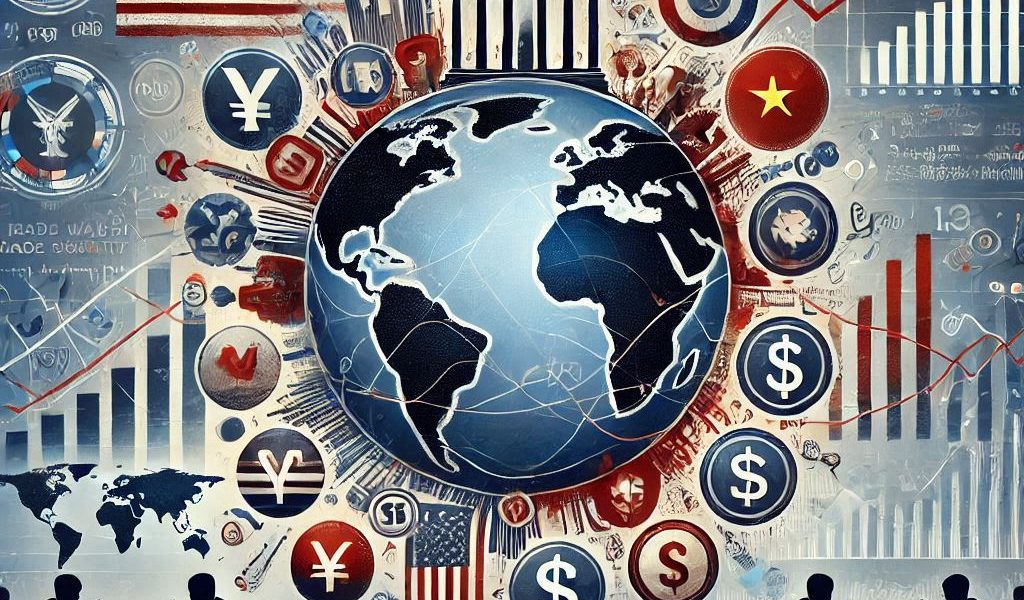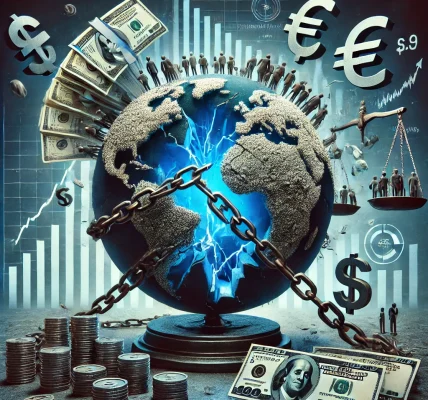The Impact of Geopolitical Events on Global Economic Stability: What Investors Need to Know
In today’s interconnected world, global economic stability is increasingly influenced by geopolitical events. Political decisions, international conflicts, trade negotiations, and even social movements can have far-reaching consequences for economies, financial markets, and investment strategies. Geopolitical risk refers to the potential for political events to affect the economic landscape, which, in turn, impacts global trade, investments, and financial systems. For investors, understanding how geopolitical events shape the global economy is essential for making informed investment decisions. In this blog, we will explore the relationship between geopolitical events and economic stability and provide actionable insights on how investors can manage the associated risks.
What Are Geopolitical Events?
Geopolitical events refer to any political events or developments that have the potential to influence the economic or social stability of a country, region, or the world. These events can take various forms, including:
- Political Instability: Elections, government changes, or protests that disrupt the political order.
- Wars and Conflicts: Military engagements, territorial disputes, and civil wars that create uncertainty in markets.
- Trade Disputes: Tariffs, sanctions, and trade wars between nations that affect global commerce.
- Natural Disasters: Major environmental crises like earthquakes, hurricanes, and pandemics that disrupt supply chains and economies.
- Diplomatic Relations: Shifts in diplomatic alliances, treaties, or international agreements that impact trade or investment flows.
Geopolitical events can disrupt supply chains, alter trade routes, and even change global commodity prices, all of which can have profound effects on investment outcomes.
1. Geopolitical Events and Global Trade
Trade Wars and Tariffs
One of the most significant ways geopolitical events impact economic stability is through trade disputes. When countries impose tariffs or restrictions on goods and services, global trade can slow down, affecting businesses that rely on international supply chains and foreign markets. For example, the ongoing trade tensions between the United States and China have disrupted global trade and impacted companies involved in cross-border transactions.
Tariffs increase the cost of imports, which can lead to inflationary pressures in domestic economies. Businesses that depend on foreign goods or services may face higher production costs, leading to higher prices for consumers. In the long term, trade wars and tariffs can reduce global economic growth and encourage countries to adopt protectionist policies, which further disrupt international trade.
Impact on Supply Chains
Geopolitical events, such as armed conflicts or sanctions, can also disrupt global supply chains. For instance, if a region that is a major supplier of raw materials or finished products faces political instability, it can lead to shortages of goods and drive up prices. Companies may have to find alternative suppliers, which can be costly and time-consuming.
The COVID-19 pandemic, for example, caused widespread disruptions in supply chains across the globe. Similarly, conflicts in oil-rich regions can impact oil supply, leading to fluctuations in global oil prices and economic instability in oil-dependent countries.
2. Geopolitical Events and Financial Markets
Market Volatility
Geopolitical events often lead to market volatility, as uncertainty in the political landscape can trigger sharp fluctuations in stock prices, bond yields, and currency exchange rates. During periods of heightened geopolitical tension, investors tend to seek safer assets, such as gold or government bonds, which can drive prices up in those sectors while negatively impacting riskier investments like equities.
For instance, the Brexit vote in 2016 caused significant fluctuations in the value of the British pound, affecting not only UK stocks but also global markets. Similarly, tensions in the Middle East or trade conflicts between major economies often lead to short-term market turmoil as investors adjust their portfolios in response to the uncertainty.
Flight to Safety
In times of geopolitical crisis, there is often a “flight to safety” among investors, where they move their investments from riskier assets like stocks and corporate bonds to safer assets like US Treasury bonds, gold, or Swiss francs. This flight to safety tends to drive up the prices of these assets while pushing down the value of riskier assets. For investors, this can mean reduced returns on equities or corporate bonds during geopolitical events but potentially more stable returns on safer assets.
Currency Fluctuations
Geopolitical events can cause significant fluctuations in currency exchange rates. For instance, if political instability increases in a particular country, investors may sell off the country’s currency in favor of more stable currencies like the US dollar or the euro. This can lead to sharp declines in the value of the local currency, which affects import and export prices, inflation, and consumer spending. Currency depreciation can also impact multinational companies with significant operations in that country.
3. Geopolitical Events and Commodity Prices
Oil and Energy Prices
Geopolitical events, especially those involving major oil-producing nations, can have a dramatic effect on global oil prices. Political instability in oil-rich regions, such as the Middle East, can create concerns about the supply of oil and lead to price spikes. Oil price fluctuations directly impact industries that rely on energy, including transportation, manufacturing, and agriculture.
For example, tensions between the US and Iran in the past led to fears of disruptions in oil exports from the region, causing a surge in global oil prices. These fluctuations in oil prices not only affect energy companies but also impact the overall economy, as higher energy prices lead to increased production costs for businesses and higher costs for consumers.
Gold and Safe-Haven Assets
Gold is often considered a “safe-haven” asset during times of geopolitical uncertainty. When geopolitical events cause market instability, investors flock to gold and other precious metals, driving up their prices. Gold is traditionally seen as a hedge against inflation and a store of value, especially in times of crisis. Other safe-haven assets, such as the Swiss franc and US government bonds, also see increased demand during geopolitical turmoil.
4. Geopolitical Events and Investor Strategy
Risk Management and Diversification
Given the unpredictable nature of geopolitical events, diversification is one of the best strategies for managing risk. By spreading investments across different asset classes, regions, and industries, investors can reduce their exposure to any single event or market disruption. This helps to mitigate the impact of geopolitical events on a portfolio.
For example, an investor who holds a diversified portfolio of stocks, bonds, commodities, and real estate in various geographic regions may be better equipped to weather geopolitical volatility compared to an investor who is heavily concentrated in one region or asset class.
Monitor Global Developments
For investors, staying informed about global geopolitical events is essential for making timely adjustments to their portfolios. News about elections, trade agreements, or military conflicts can provide early signals of potential market disruptions. By closely monitoring global developments and their potential impact on the economy, investors can make proactive decisions to protect their investments and capitalize on opportunities created by geopolitical shifts.
Hedging Against Geopolitical Risk
Another approach to managing geopolitical risk is through hedging. Investors can use various financial instruments, such as options and futures contracts, to protect against potential losses caused by geopolitical events. Additionally, currency-hedged ETFs and international bond funds can help investors reduce exposure to currency risk and geopolitical volatility in foreign markets.
5. Conclusion: Navigating Geopolitical Risks in a Globalized Economy
Geopolitical events are an inevitable part of the global economic landscape, and their impact on economic stability cannot be overstated. From trade wars to political instability, these events shape global trade, investments, and financial markets, creating both risks and opportunities for investors. By understanding the effects of geopolitical events and adopting strategies such as diversification, risk management, and staying informed about global developments, investors can better navigate the complexities of the geopolitical landscape and protect their portfolios from potential shocks.




